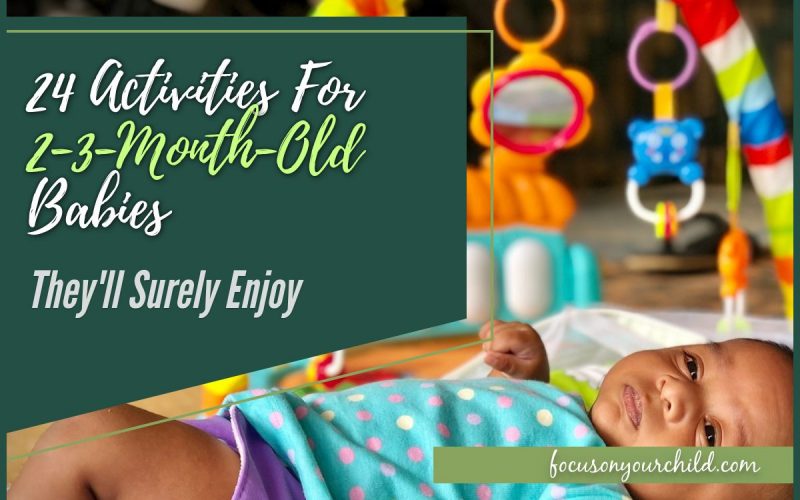Congratulations! You’ve just welcomed a new baby into the world. It’s time to start planning for their future fun and educational activities. One of the most important things you need to do is make sure your child is stimulated in every way possible, by providing them with activities that allow them to practice different developmental skills like grasping, rolling, sitting up, and more.
Fortunately, there are so many activities that you can do with your newborn. From physical activities to simply talking with the baby, so many activities can be both fun and beneficial for both the baby and the parents. The parents can also employ the use of various instruments such as toys, mirrors, and books to diversify the activities with the baby.
24 Activities for 2-3-month-old Babies
-
Eye Contact
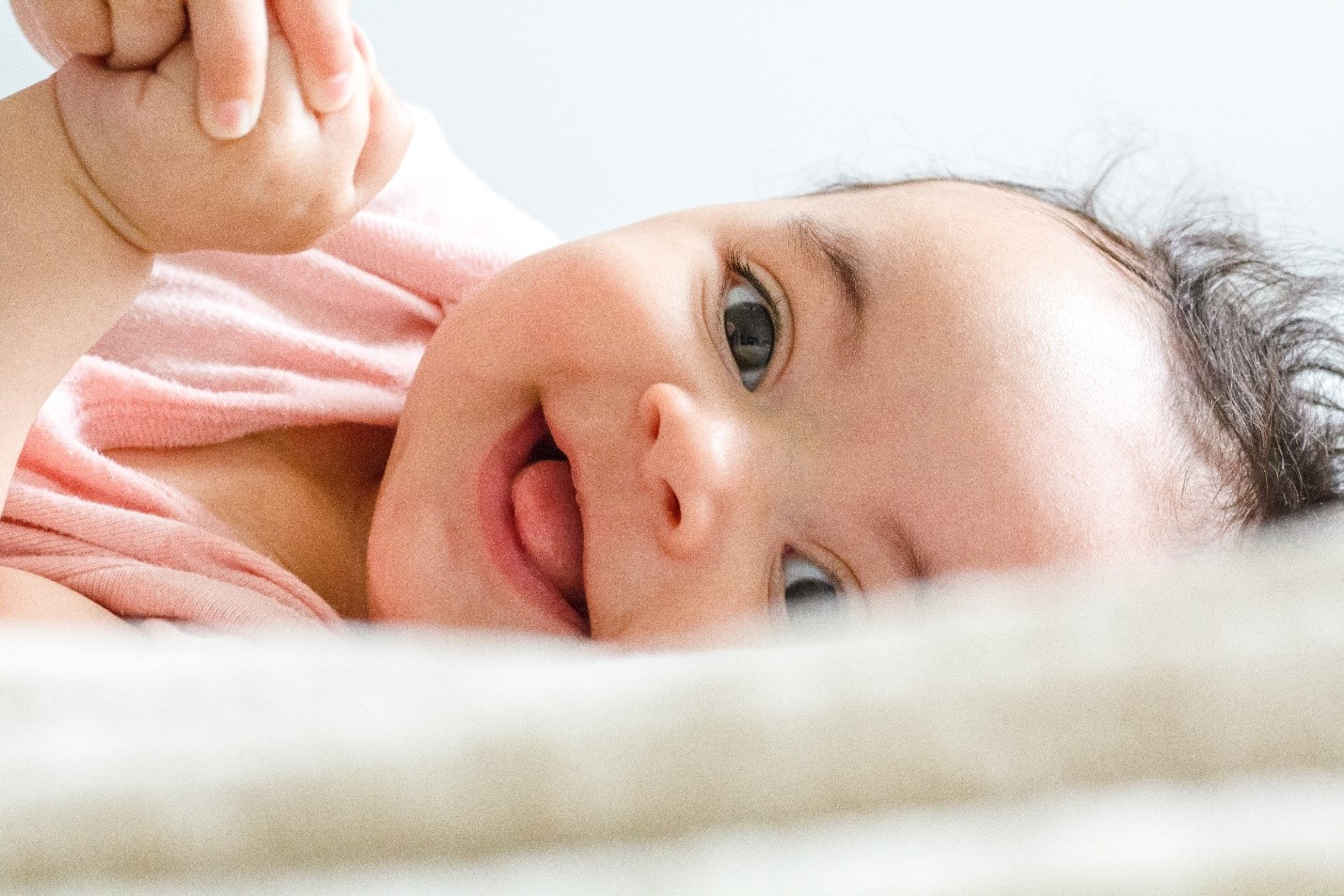
Eye contact is a big part of communication, and you can start it with your baby by holding them in front of you so they can see your face. You’ll want to make sure that there’s no light behind or on their side as well since this can distract them from making eye contact!
Once your baby gets used to looking at things, you’ll want to make sure that they start looking at your face instead of objects or other things around them. You can even try wearing a mask so it’s not easy for them to look away.
-
Smiles
It’s important to remember that no matter what you do with your 2-3 month old, they are going to love it as long as you make them feel safe and happy. Of course, the best way for them to learn about their world is by making sure they’re smiling and laughing at new things, but there will also be plenty of time for tears too.
Smiles are a great way to build their confidence and make them feel loved, which is what they need most from you as their parent or caregiver. It’s all about finding that balance between fun activities and making sure your baby knows how much you care.
-
Talking to Them
One of the first things that your little one will start to do is babble. It’s important for you to talk back to them, especially when they are cooing or babbling. These sounds make up words, so it’ll be good practice for their language skills as well.
You can even go a step further by reading stories out loud to them. Get creative and use different voices for each character in the story, or get a puppet show so they can see how facial expressions work with their language skills as well.
-
Read Aloud
If it’s hard for you to find the words to say to your baby, you can always just read a book. It wouldn’t even matter as much which types of books you read as long as you expose them to new words. This was specifically recommended by the American Academy of Pediatrics because studies have shown that the number of words babies hear in their earliest years impact their literacy, vocabulary, and reading comprehension.
As your child gets older, you can start reading them more complex stories. You’ll be surprised at how much attention they will give to the written word! They might even try to turn the pages of their favorite storybooks themselves. Make sure that when you read out loud, it’s time for quiet and undivided attention from both sides.
-
Snuggle Time
Babies love being held close by you when they are feeling comfortable enough to cuddle up next to you while enjoying your warmth and body contact. When they are more than six weeks old, you can start to hold them in your lap and rock them back and forth.
Be sure that as soon as they feel uncomfortable or if their neck starts to wobble around a lot when you’re holding them up high, it’s time for the baby to go down on the floor.
-
Playing Games
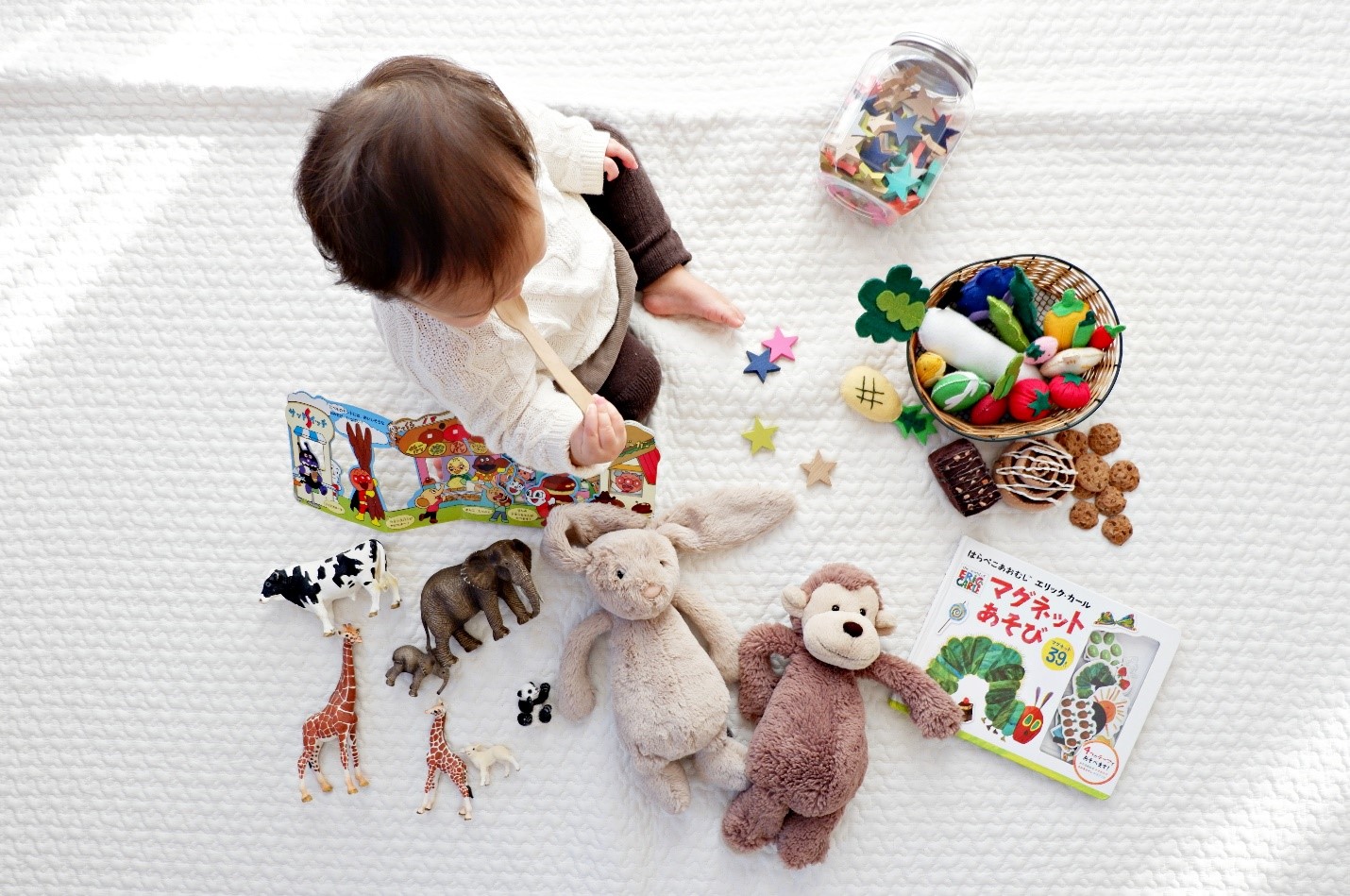
You might feel like you’re the only one who gets to play with your baby, but it’s important that they get used to playing on their own too. As soon as your child starts taking an interest in toys and other things around them, try putting away some of your items so they can discover all sorts of new stuff.
You can take it a step further by setting up an obstacle course for them to crawl through. Put pillows on the floor or make your own play gym with interesting textures and shapes. This will allow them to learn how their body works in space.
-
Tummy Time
Babies need to have time on their tummies. Not only does this allow them to build up strength in the muscles of their neck, but it also helps with head control and body awareness too. Make sure you put a couple of pillows down so they don’t roll around or get uncomfortable, and make sure that toys are within arm’s reach so they can play with them while their tummy is down.
Aside from letting babies have tummy time on their own, many parents also place their babies on top of their chests and let the babies have tummy time there. Not only does this allow them to build strength, but it also gives the baby quality time with the parent.
-
Bonding Time
There’s nothing better than the loving bond between you and your child! As babies get older, they will start to have more fun when it comes to interacting with you in every way possible. Play peek-a-boo by covering up your face or using a toy to block their view of you.
As children get older, they will start enjoying more complex games with objects that have different shapes, which is why it’s important for them to be engaged in the world around them.
-
Wiggle Toy
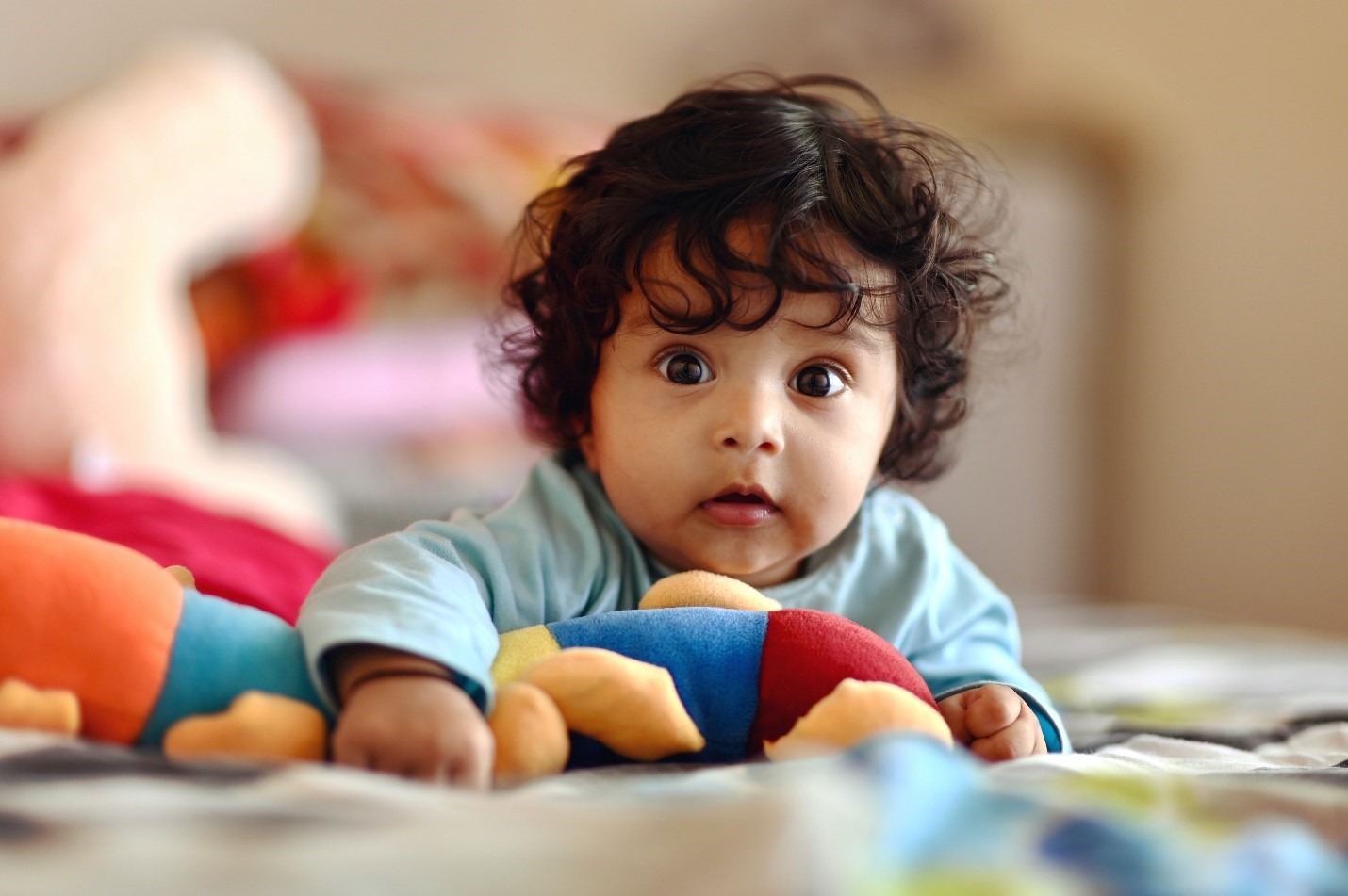
Babies love toys that make noise and wiggle on their own. Get them a toy like this as soon as they start to show an interest in things around them. It’ll be good for keeping both your attention, especially if you want something quiet while you’re trying to get some work done or watch TV.
Make sure that the music and movement in the toy aren’t too overwhelming for your 2-3 month old. You can turn it off or get a different one if you notice that they start to cry when the wiggling and music starts.
-
Cuddly Rattle
Cuddly rattles are great for babies because they can hold on to them and shake them around, which is good practice with their fine motor skills. It also helps if you press the button that makes it make a noise as a parent or caregiver would do.
You want to be sure not to leave your baby unattended with these toys though, as they might try to put some of the pieces in their mouths and choke on them. If there’s something more important going on at the moment (e.g., preparing a meal), then hand off this toy until later when you can give them your undivided attention again.
-
Bumper Buddies
These play mats have different textures all over so that your child will learn about how things feel in the world around them. There are even some little toys that they can play with, which makes it great for keeping babies entertained while parents get a chance to take care of other things.
Make sure you keep an eye on your baby though when they’re playing on their own like this, and always be there if needed. They need supervision at this age as they still don’t have a lot of control over their limbs.
-
Switch it up
Mixing things up will keep babies interested in the world around them. The more activities you can do with your baby, the better. Not only does this help to build cognitive skills and problem-solving abilities, but it also helps kids learn about how to be social with other people.
You can take your kids on walks or go for car rides, bring them outside if the weather permits it, and let them explore different sensations. You also want to make sure that they’re not spending too much time with screens as this may inhibit their progress in certain areas of development. Make sure they get enough time to play with toys and interact with their parents or caregivers too.
-
Baby Gymnastics
Babies can be introduced to the world of gymnastics as early as eight weeks old. They don’t need any previous training – they just need an open space where they’re not going to knock into anything that might hurt them. Babies can start out by playing with a small mat and learning how to roll over, crawl around on the floor, or even just sit up.
You might want to supervise your baby as they’re crawling around for now though if you have any stairs in your house that they’ll be able to access. You never know what kind of trouble babies can get into when they’re exploring a new place.
-
Dance Time
Dancing with your baby is a great way to build their motor skills! You can even make it into a game and give them some kind of toy like a small ball or stuffed animal that they have to catch before you hand it off. This will help them learn how to move around on their own, but also stay active enough for all of the exercise that they need.
You can also see if there are any local dance classes for babies, which will help them to get even more socialized while learning about different kinds of movement. Dance is a great way not just to have fun with your kids but also to build their motor skills and memory at the same time.
-
Family Time

Bonding with your baby is very important, especially in the early stages of life. There are plenty of ways to bond with them that don’t involve playing or working too hard. You can take walks together, sit down and read books, or even just spend time talking about whatever comes up for you both.
This will help babies understand what their parents or caregivers are thinking, and it will also give them a chance to learn about emotions in the world around them. Your baby can even start learning how to speak through these activities too.
-
Massage Time
Massages are a great way to bond with your 2-3 month old and help them learn about their body. That’s just part of the reason why massage therapy is becoming so popular for adults these days too. You can talk to your baby or sing songs while you’re massaging them in order to get their brain working and see if they start making any connections.
There are some great books out there for kids who love to be read to, which will help them learn about new things and build their memory skills while you’re at it too. You can also check with your doctor or pediatrician if they have any recommendations on how often a massage should happen, just so that you don’t overwork them or anything.
-
Sensory Play
In order to get your baby’s brain working, you’re going to want them to have a lot of sensory play. This can be done by letting them explore different textures, putting little toys in water for them to fiddle with when they’re in the bathtub, or even just giving their hands a chance to feel all of the things that are within reach.
You might want to make sure you supervise your baby while they’re doing this just to be safe and make sure that they’re not going after anything particularly dangerous. This is a great way for them to learn about the world around them though.
-
Fresh Air Time
It’s important for babies to get plenty of fresh air and exercise, especially in the early stages of life. This will help them build their muscles and bones while also giving them a chance to practice crawling or walking more easily.
You may want to wait until your baby is at least six months old before you start taking them out on walks, but going to a nearby park or even just sitting outside with them on a nice day is great for their mental health too.
When it comes time to take your baby out of the house, be sure that you dress them in layers and cover up any exposed skin. Babies don’t have as much protection from the sun’s rays as adults do, and it’s important to be safe when you’re outside.
Make sure that your baby is wearing a hat with UV protection too if they’re not in the shade, and always bring sunscreen with you if it’s sunny outside.
-
Mirror Play
Mirror play is a great way for babies to learn about themselves, and it can be done in several different ways depending on what you’re looking for. You may want your baby to see their face or try new expressions when they look into the mirror.
You’ll also want them to get used to seeing their reflection by putting stickers on the mirror or even just holding up a picture of them so that they know what to expect every time you give them the chance to look.
Babies are constantly learning about themselves and the world around them. These activities will help your baby learn more quickly than ever before while also making sure they’re having fun too. Just remember not to push anything on them if they’re not interested and to always listen for cues from your baby.
-
Finger Holding
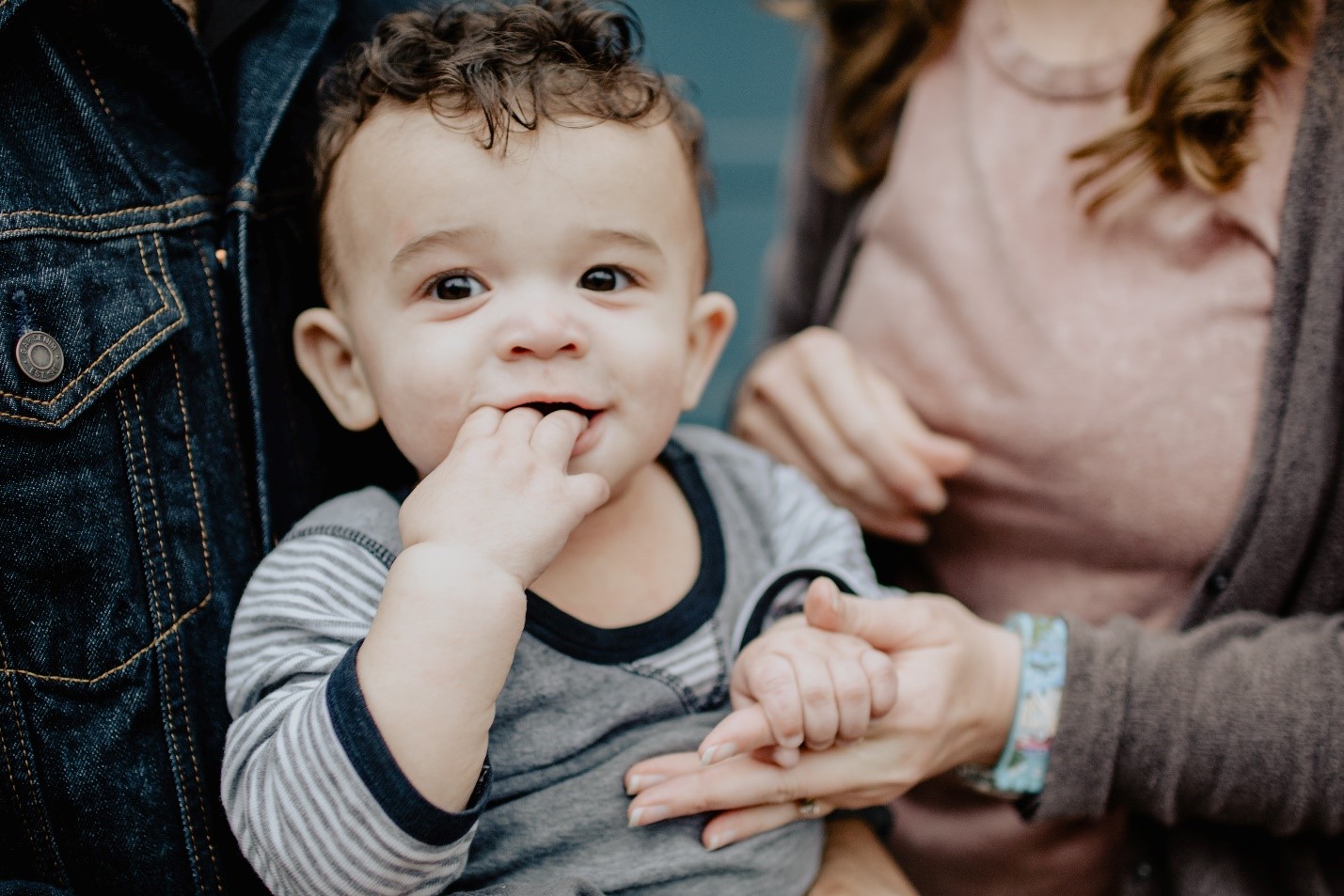
It’s important for babies to learn how to hold onto things, and you can start this with something as simple as your own fingers. This is a great way for them to get used to grabbing things while also holding your hand.
Once they’re old enough, you’ll want to give them toys that have been specially designed for small hands so they can get used to holding things on their own. You’ll also want them to practice grabbing your finger and pulling it towards themselves, which will help them learn to crawl and walk more easily.
-
Playing with Light
Bright lights are a great way for 2-3 month olds to get used to seeing things, and it can be done easily with something as simple as a weak flashlight. If you’re outside in the evening when there’s still some light left in the sky, take your baby out with a blanket or their favorite toy.
You may want them to hold onto one of your fingers or even a toy as they hold the flashlight, but you’ll also want to make sure that there’s someone else with them in case anything happens. Always remember that your baby is learning from everything.
-
Playing With Bubbles
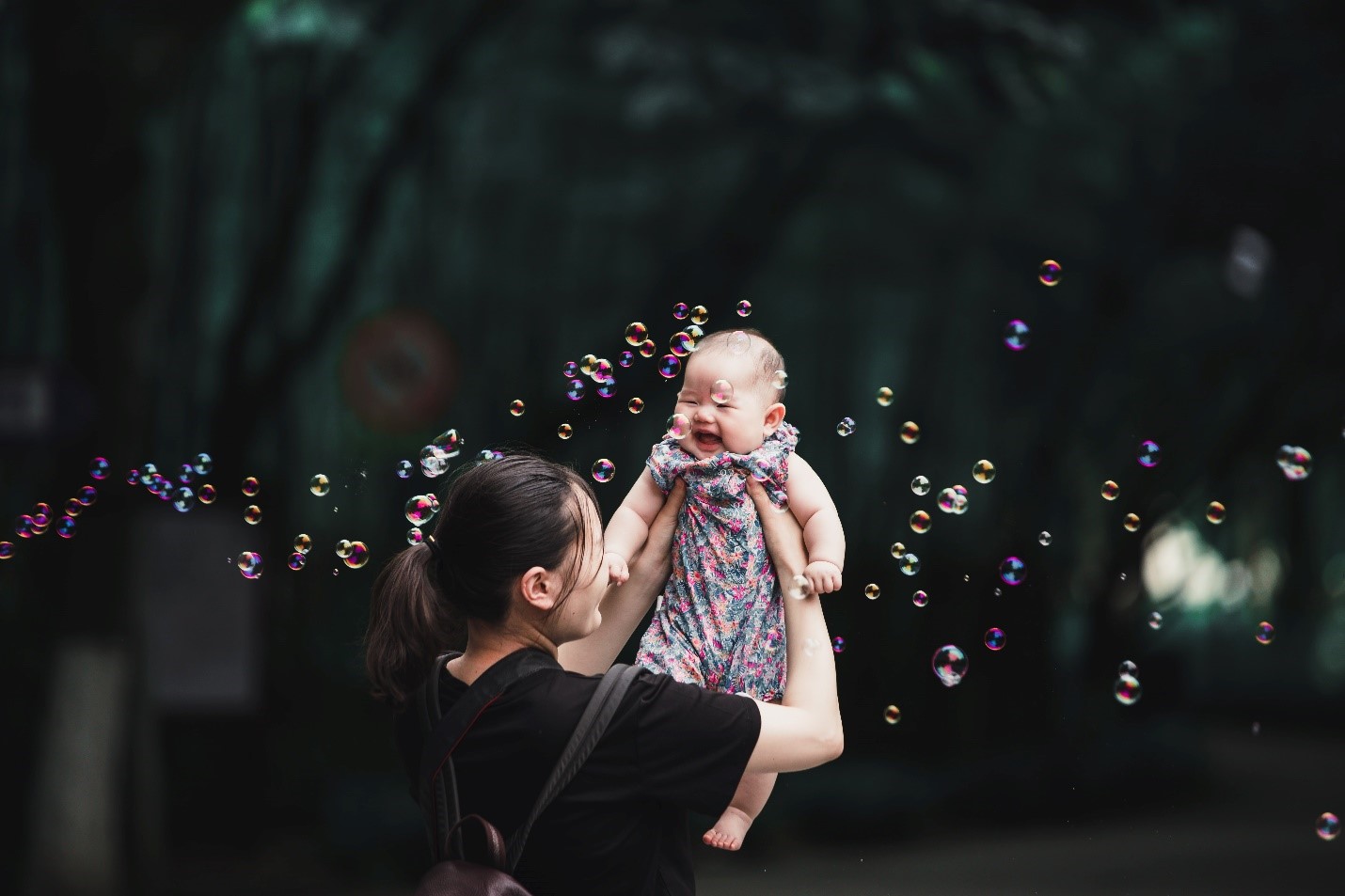
Bubble play may not seem like much for an adult, but it can be great for babies. Not only do bubbles look pretty and fly through the air, but they can be popped with a little bit of force too.
Bubbles are one of those activities that you can tailor to your baby’s needs as well, so don’t rule it out just because there may not seem like anything special about them at first glance. If your baby is young, make sure that you hold onto them as they do this to keep their distance.
-
Scent Play
Babies love to smell things, and they learn a lot from the scents that surround them as well. You can make scent play fun for your baby by giving them different types of items to sniff with their noses or mouths.
You may want to put some soap in front of them, so it looks like they’re eating food when you clean them or put a little bit of lavender oil on their pillow before bedtime to help them relax.
As your baby gets older, you’ll want to give them scented toys and different types of food that they can smell too. This will make it easier for them to learn about the world around them as well as how things work together.
-
Listening to Music
Babies love music, and it can be a great way for them to learn more about how sounds work. Loud noises are fun as well as they start getting older too. Just remember that you should always turn the volume down so your baby doesn’t get scared of it later on in life.
You may want to play different types of music in the background when you’re with your baby to see how they react. It can be easy for them to get distracted by it, but that’s part of the learning process.
